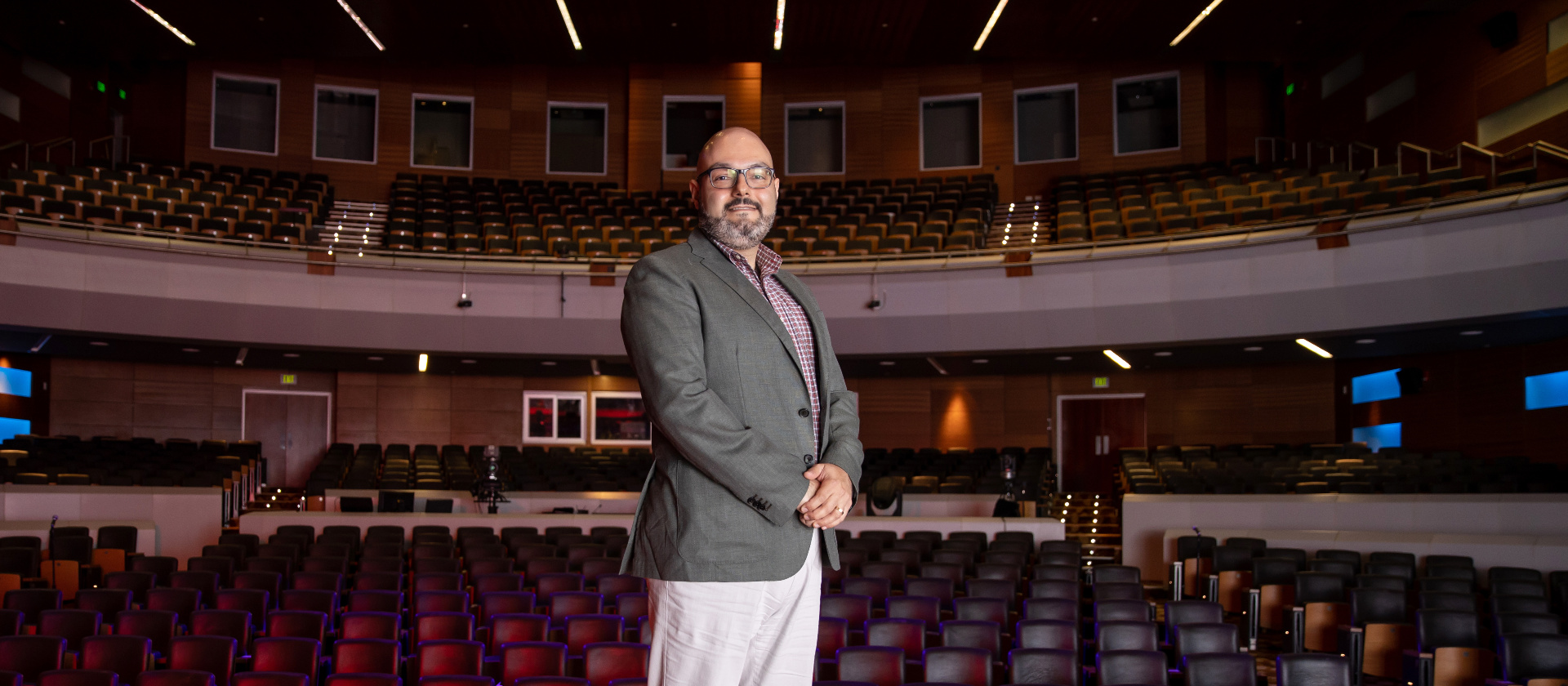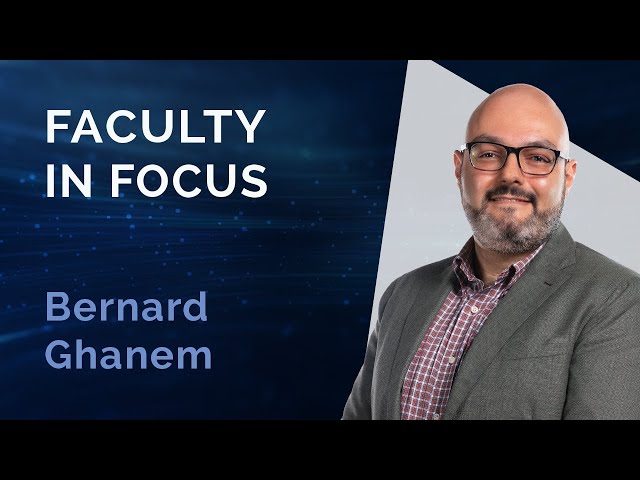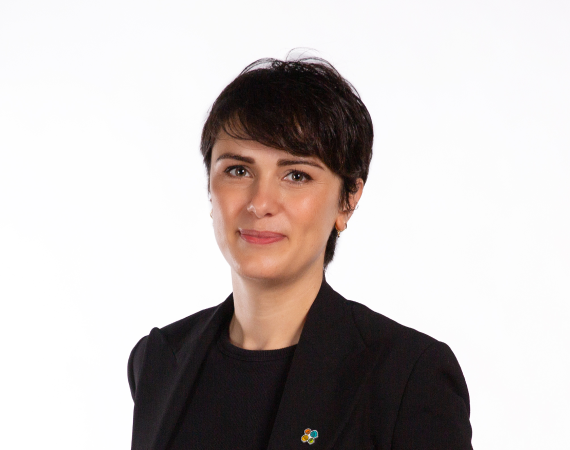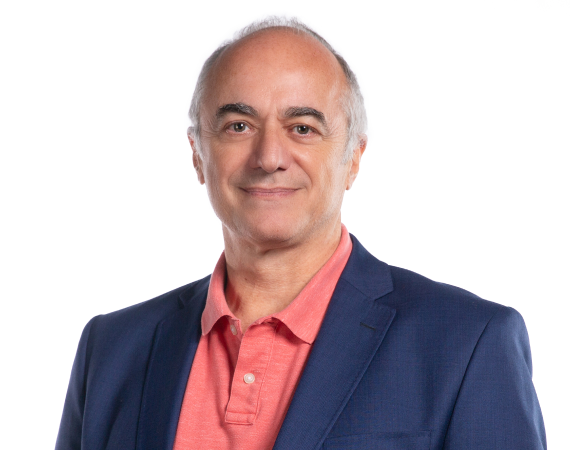
Bernard Ghanem
Professor of Electrical and Computer Engineering & Deputy Director of KAUST's AI Initiative

"AI is a very exciting field... It is not the future anymore. It is the present. It can have direct massive impact on our human lives."
Allowing Computers to see the World
Bernard Ghanem thinks computers can come to understand the world perhaps even better than humans. This is why he is studying computer vision and machine learning, particularly the concept of “video understanding,” at KAUST. There since 2012, Ghanem is currently the Deputy Director of the university’s Artificial Intelligence (AI) Initiative as well as the Principal Investigator of the Image and Video Understanding Lab and a member of the Visual Computing Center.
Working alongside one of the godfathers of modern AI, Jürgen Schmidhuber, Ghanem believes the KAUST AI Initiative is making a meaningful impact on the field, not to mention promoting research excellence.
“The ultimate goal of my research is to allow computers to see the world, to understand and perceive the world around them in the same way, if not better, than humans,” Ghanem explains. Simply put, Ghanem’s research seeks to answer the question of how computers can be designed to see and observe the visual world better than humans.
Raised in a family of physicians, Ghanem never saw himself as one. Instead, he gravitated towards mathematics, which he enjoyed because of the element of logic behind it. And because both computer vision and AI incorporate math, he was immediately drawn to this budding field. Ghanem earned his bachelor’s degree in Computer and Communications Engineering from the American University of Beirut. He then continued his education in the United States, earning his master’s degree in 2008 and PhD degree in 2010 in Electrical and Computer Engineering from the University of Illinois at Urbana-Champaign.
Ghanem accepted a position in Singapore upon completing his PhD as the Principal Investigator of a project in automated sports analytics. It was while at a conference on computer vision in the United States that he was first introduced to KAUST, a name he had never come across before. At the same conference, a director from the university invited him to visit the campus and convinced him to come to Saudi Arabia for a campus visit, which he eagerly agreed to.
Ghanem’s first reaction when he visited the KAUST campus was “this looks a lot like Stanford,” with long roadways and palm trees lining both sides of the road.” It was an entirely new world for him. In addition to moving back to the Middle East, where he was close to his parents, he found the diversity of the faculty and student body at the university both unique and attractive, with over 100 different nationalities represented on campus. Some 10 years later, Ghanem is still at KAUST and loving every moment of it.
Ghanem explains that, because of the support provided to every researcher, scholar and student at the university, “if you’re unable to do good research at KAUST, you’re probably not able to do it anywhere.” This support is not limited only to funding but also includes facilities, human resources, and computational support.
Ghanem would love to see KAUST grow to its full potential. Each day he is excited at the prospect of solving new problems and meeting his students to see what he can learn from them that day. In this sense, Ghanem’s message to his students is: “be humble.” The more people learn, the more they realize they don’t know, he says. He sincerely believes that people should always actively work to acquire knowledge and new skills to unlock their full potential.


